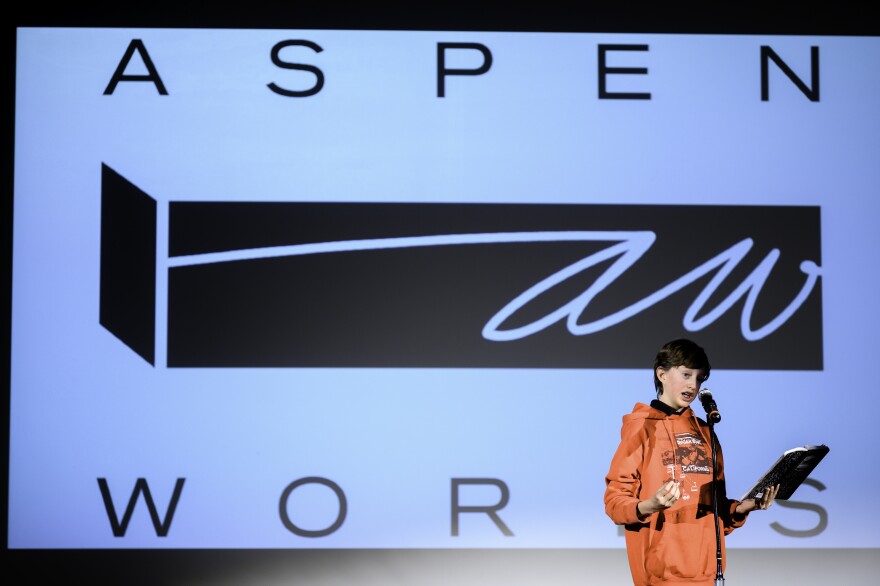This week, a group of middle and high school students from the Roaring Fork Valley compete virtually in Aspen Words’s Youth Poetry Slam. The event is the culmination of Aspen Words’s Poetry Project programming in local schools, and marks the end of National Poetry Month.
For anyone who hasn’t heard of a poetry slam before, it’s a poetry competition that features multiple poets battling it out on stage, and judges hold up score cards as participants throw down verses they’ve prepared ahead of time. The effect is a kind of performance art that weaves together cadence, rhythm, sound and a dose of confidence through spoken word.
“It’s a poetry reading disguised as a game show,” said Joaquín Zihuatanejo of the typical dynamic.
Zihuatanejo is one of three teaching poets who worked with local students during biweekly, virtual Slam Club meetings leading up to the event. The virtual Slam Club meetings were an optional extracurricular in addition to Aspen Words’s in-school poetry workshops.
Zihuatanejo would know a thing or two about the often electrifying atmosphere at slam poetry events; he’s won local and national titles for slam poetry, and the World Cup of Slam Poetry in 2009. At a typical event, the audience can be loud, yelling and cheering at times, or booing if they disagree with a poet’s score, and one poet is ultimately named a winner.
Poetry slams are a more contemporary form of performance art, but Zihuatanejo said it’s actually a connection with the literary genre’s roots.
“Poetry started as an oral tradition, poetry was spoken before it was written,” he said.
The virtual nature of this year’s event will change some of the more typical dynamics of the slam. However, the topics covered by this year’s lineup of young slam poets are powerful, according to Zihuatanejo. Climate change, racial justice and mental health are just some of the issues local kids have been writing — and slamming — about during the Slam Club meetings.
Zihuatanejo said it’s not unusual for kids to focus on heavier topics in their work, but he’s noticed more young writers grappling with serious subject matter through poetry since the pandemic hit.
“I think they’re feeling the weight of things more openly,” said Zihuatanejo. “And I don’t think that’s a bad thing. I’ve been to several of these virtual youth poetry readings and it’s shaken me and inspired me.”
Aspen Words Program Coordinator Ellie Scott agreed that although the event has moved online this year it’s still a moving showcase of local talent. Going virtual is also less high stakes for some newer slam poets looking for a way to express themselves.
“It’s always so inspiring to hear from young people,” said Scott. “Because we’re going to be virtual, it’s going to be a little less focused on the actual scores, and more of a focus on ‘hey, great job being here and making it through this pandemic year.’”
That being said, poets competing at this week’s Slam do have a chance to take home a cash prize — and bragging rights — for the highest score, and any school-aged poets can sign up to slam ahead of time even if they didn’t participate in Slam Club or the in-school workshops.
The virtual event is free and open to the public on Thurs. April 29 at 6 p.m., and will be archived on Aspen Words’s site for viewing after the Slam.






